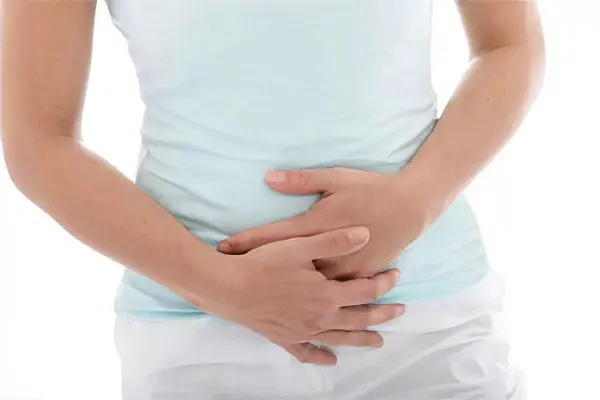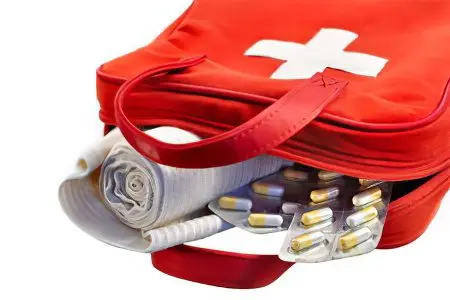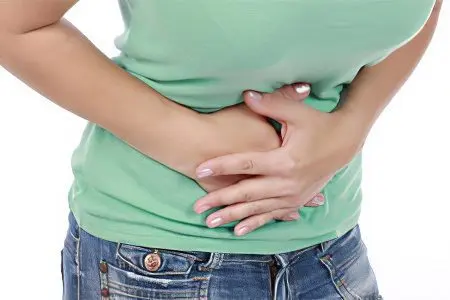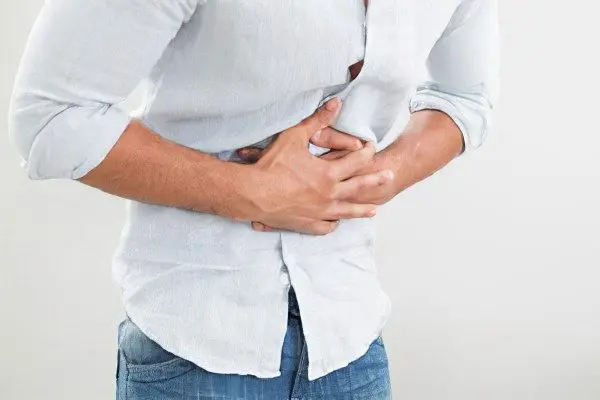Contents

There are a lot of reasons why the stomach can hurt, ranging from banal overeating to serious pathologies of the digestive organs. Surprisingly, even myocardial infarction sometimes causes pain in the epigastric region.
In the stomach, or rather, in the abdominal cavity, the vital organs of a person are concentrated. It is not for nothing that the ancient Slavs attached the same meaning to the words “stomach” and “life”. However, if earlier people had difficulty getting their own food, spending a lot of time and effort on it, then in the modern world a person does not bear such energy losses. However, the desire to eat tasty and dense remains unchanged. Therefore, it is not surprising that the stomach often hurts precisely because of overeating. Although you can never be 100% sure that the cause of the pain lies precisely in the excessive consumption of food. Sometimes the stomach gives signals about other, more serious problems in the body.
7 warning signs of stomach pain
The pain is concentrated in the center of the abdomen in its upper part (“it hurts in the pit of the stomach”). The causes of such pain can be varied.
Sensations: the pain is sharp, radiating to the sternum, and rumbling is heard in the abdomen. Based on these signs, gastritis can be suspected. The most common cause of inflammation of the gastric mucosa is the bacteria Helicobacter pylori. They irritate the walls of the stomach, and excessive production of hydrochloric acid, which is released in response to irritation, leads to the development of inflammation.
Gastritis is of two types:
Hyperacid, which develops against the background of increased acidity of gastric juice.
Hypoacid, which occurs against the background of low acidity of gastric juice. The cause of inflammation is impaired digestion of food and its decay in the stomach. In addition, such an environment is ideal for the reproduction of Helicobacter pylori.
With gastritis, the pain is slowly, but fading away. If they continue to disturb a person for a long time and do not lose intensity, then a stomach and / or duodenal ulcer can be suspected.
Pain in the upper abdomen can be triggered by myocardial infarction. At the same time, they radiate to the left hand. Delay in seeking medical help in this case can be fatal.
Inflammation of the appendix can also cause pain in the upper abdomen. And the pain will be very intense. After a while, they can move to the right side. Therefore, until the patient has been examined by a specialist, it is better to refuse to take analgesics. If you muffle the pain, then making a correct diagnosis can be difficult.
Even if the pain in the abdomen under the pit of the stomach went away on its own, and you didn’t have to call an ambulance team, you still need to make an appointment with a gastroenterologist. If the doctor prescribes FGDS, then you should not refuse to undergo the procedure. Only with its help it will be possible to make the diagnosis as correctly as possible, which means to get adequate prescription diseases.
The pain is concentrated in the right hypochondrium. Feelings: the nature of the pain is sharp, it appeared unexpectedly for a person. Pain is accompanied by symptoms such as nausea and vomiting, a feeling of heaviness in the abdomen, increased gas formation. The pain may radiate to the right arm, to its upper part. After an hour, the pain goes away.

If the pain in the abdomen proceeds according to the described picture, then biliary colic can be suspected in a person.
There can be many reasons for its occurrence:
Binge eating.
Eating fatty, fried or spicy foods.
The presence of stones in the gallbladder.
Clamp of the gallbladder during a long stay in an uncomfortable position.
Shaking in the car, etc.
However, myocardial infarction cannot be ruled out. This is especially true for people with disorders in the work of the heart and blood vessels.
In such a situation, you need to call an ambulance. If doctors advise hospitalization, then you should not refuse it.
If the pain went away on its own, then in order to avoid the occurrence of a second attack, you should stop eating for the next 12 hours. After this time, you need to adhere to a dietary diet, excluding spicy, fatty and fried foods from the menu.
Even if the pain managed to stop on its own, it is necessary to visit a gastroenterologist. You may need to consult a urologist or surgeon. If a woman is taking contraceptives, she should tell her doctor about it. Sometimes drugs from this group can provoke a second attack of pain.
Universal advice: if you are overweight, you need to get rid of it. Otherwise, health problems can not be avoided.
Sensations: the pain has a dull character, appetite disappears.
In this case, biliary dyskinesia can be suspected. At the same time, bile stagnates, the processes of digestion of food are disturbed.
Sometimes this type of pain can indicate hepatitis A or B in the acute stage, or an exacerbation of chronic hepatitis C, as well as cirrhosis of the liver. The pathology of the liver is additionally indicated by such a symptom as light feces.
It is impossible to delay in contacting a doctor in this situation. It is urgent to visit a hepatologist and a gastroenterologist. In the future, you will need to adhere to the treatment prescribed by the doctor, follow a diet, eat small portions, and refuse dishes that load the digestive tract. Under the absolute ban any alcoholic beverages.
The pain is concentrated in the right side at the level of the belt. Sensations: intense cutting pain radiating to the lower abdomen, to the genitals. Periodically, the pain subsides, and then reappears.
Such pain most often characterizes renal colic. It occurs against the background of urolithiasis, with bending of the ureter, with pyelonephritis. Women who have not given birth may experience kidney prolapse, especially if they are prone to excessive thinness.
According to a similar clinical picture, inflammation of the ovaries, appendicitis and osteochondrosis develop. But if the spinal column is affected, the pain will radiate to the lumbar region.
If such pain does not occur for the first time, then you should take an antispasmodic and plan a trip to the urologist.
If such sensations occur for the first time, then you need to call an ambulance team and follow the recommendations of doctors. You may need to consult such narrow specialists as a gynecologist, surgeon or neurologist.
The pain is concentrated in the left hypochondrium. Sensations: over time, the pain intensifies, has a aching character. Pain as if encircling the waist with a ring. In parallel, nausea, increased gas formation, diarrhea or constipation may occur. The condition worsens after eating fatty foods or alcoholic beverages.
A similar clinical picture is characteristic of pancreatitis. The disease can occur in acute or chronic form. The outflow of juice secreted by the pancreas is disturbed. This juice contains digestive enzymes that begin to dissolve not food, but the gland itself.
Also, the described symptoms may indicate open gastric bleeding.
To stop an attack of pancreatitis, you must adhere to a diet. You can not eat fatty and spicy foods. Any alcoholic drinks are prohibited. If the condition continues to worsen, then an ambulance must be called.
The pain is localized in the center of the abdomen. Sensations: the abdomen is enlarged in size due to accumulated gases, rumbling and overflowing are heard in it, the pain is aching, short-lived.
The pain is concentrated under the navel. Feelings: the pain does not have a clear localization, it occurs in one place or another. In addition to pain, a person suffers from bloating, and constipation is replaced by diarrhea.
These symptoms are characteristic of irritable bowel syndrome. The cause of this disorder is hidden in psychosomatic disorders.
In some cases, such symptoms characterize enterovirus infection or gastroduodenitis.
With an increase in body temperature and the addition of vomiting, it is necessary to take enterosorbents and drink as much clean water as possible. Be sure to see a doctor for a diagnosis.
The pain is concentrated in the lower abdomen: in the center, right or left. Sensations: pain of a pulling nature. Similar symptoms most often indicate adnexitis, or irritable bowel syndrome. Other possible causes of pain: ectopic pregnancy, inflammation of the bladder, endometriosis. This condition requires examination by a gynecologist.
Often, when abdominal pain occurs, people take enzymatic preparations, often without even understanding how they work. Enzymes are essential for the normal digestion of food. They are produced by the body itself. Some of them are activated only when interacting with coenzymes (they come with food in the form of vitamins and trace elements).
Digestive enzymes are very unstable substances, they are destroyed at high temperatures. Therefore, with an increase in body temperature, most people lose their appetite. When a person eats a lot of acidic foods, this leads to an increase in the acidity of gastric juice and enzymes die. When overeating, enzymes are simply not enough to cope with large volumes of food.
Enzymes for stomach pain can help to cope with the digestion of food. Periodically, they can be taken, which makes it possible to alleviate the condition and prevent food from rotting in the stomach and intestines. For example, this is true when overeating or during an intestinal infection. However, when a person takes enzymes on an ongoing basis and cannot do without them, this indicates serious errors in nutrition and a malfunction in the digestive system. For a solution to the problem, you must consult a doctor.

Similar symptoms are characteristic of indigestion. Most often this happens after overeating. The digestive tract is not able to cope with large volumes of food, which provokes characteristic discomfort.
Also, the following disorders cannot be excluded: the development of dysbacteriosis (relevant in the case when a person was treated with antibacterial drugs), lactase deficiency (it is necessary to pay attention to whether the appearance of discomfort is associated with the intake of milk or products based on it).
To cope with the pain, it is necessary to take drugs to neutralize gases in the intestines, as well as enzymes that will help digest the abundance of food.
First aid for abdominal pain

If the pain in the abdomen is very severe, then you should immediately call an ambulance team.
Until the doctors arrive at the place, the following recommendations should be followed:
Refuse any food. It will be a mistake to use liquid porridge or drink milk, because it is not known what exactly provoked abdominal pain. It is possible that a person has an attack of acute pancreatitis or appendicitis, and under these conditions, eating is strictly prohibited.
It is necessary to take a horizontal position, get as comfortable as possible. As a rule, the fetal position allows you to relieve pain. Movement should be limited as much as possible.
It is better to refuse to take antispasmodics and analgesics, as this will make it difficult to make a correct diagnosis. In addition, some drugs can make you feel worse by causing bleeding or other complications.
Do not apply a hot heating pad or other warm compresses to the abdomen. This will lead to increased inflammation if the abdominal pain is caused by infectious processes. Cold helps relieve discomfort.
What should I do if my stomach hurts?

If your stomach hurts, you need to take the following steps:
Eat small meals, but often. You can’t overeat.
You should stop drinking any drinks containing gas so as not to increase bloating.
Irritate the stomach drugs containing acetylsalicylic acid, as well as anti-inflammatory drugs. You need to completely eliminate alcohol.
3 hours before a night’s rest, you should refuse to eat.
Cigarette smoke contributes to increased production of hydrochloric acid, which will lead to an increase in the intensity of pain.
You should stop wearing tight clothes.
To reduce negative symptoms, you can take antacids. If you grind the tablets before taking, the effect will come faster.
Antacids. When overeating or eating spicy or fatty foods, you can take antacids, enzymes, drugs to normalize intestinal motility. Antacids are available from pharmacies without a prescription.
Useful information about these drugs:
Antacids may contain calcium. Some of them are food supplements to compensate for the deficiency of this trace element.
Antacids envelop the gastric wall and neutralize the irritating effect of hydrochloric acid on it. This can lead to the fact that other drugs will not be absorbed in full.
Antacids can cause loose stools or constipation.
If the person is at home, it is best to take an antacid in liquid form. It is more convenient to use tablets at work.
Antacids are designed to neutralize the destructive effect of hydrochloric acid on the walls of the stomach. These funds may contain calcium, magnesium, aluminum. Sometimes a combination of these components is present in the preparations.
In the form of effervescent tablets that must be dissolved in water, sodium bicarbonate is released. A person’s blood pressure may increase after taking this drug.
Bismuth subsalicylate has an enveloping effect. This substance protects the walls of the stomach, but weakly neutralizes hydrochloric acid.
Drugs to reduce the production of hydrochloric acid. Medicines from this group cannot neutralize hydrochloric acid, they are designed to prevent its excessive production by blocking receptor cells. These are drugs such as Ranitidine, Famotidine, Cimetidine, Nizatidine.
Drugs that block the last step in the production of hydrochloric acid. Omeprazole belongs to this group of drugs.
Drugs aimed at reducing gas formation in the intestines. One of the most effective drugs that reduce gas formation is Simethicone.
Preparations for the normalization of gastrointestinal motility. To relieve spasms, you can use Drotaverine or Mebeverine. The drug Domperidone allows you to adjust the work of the intestinal muscles and facilitate the passage of food masses through the organ.
In order not to harm your own health, before taking this or that drug, you should get medical advice. You can not, at your own discretion, take drugs aimed at suppressing the production of hydrochloric acid. In some cases, abdominal pain can be caused by completely different reasons, and making a diagnosis solely on the basis of symptoms is quite problematic. Therefore, when abdominal pain does not cease to disturb for two weeks or more, you need to visit a specialist.











tinotenda chose nebetseredzo yakakosha iyo